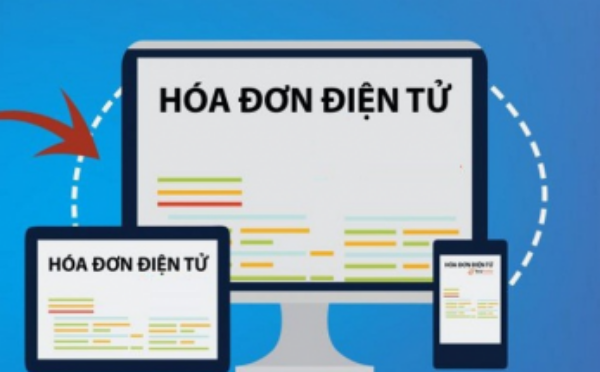Businesses must register to apply electronic invoices from November 1, 2020
This is one of the notable contents of Circular 68/2019/TT-BTC guiding the implementation of certain provisions of Decree 119/2018/ND-CP on electronic invoices for the sale of goods and provision of services, issued on September 30, 2019.

Illustrative photo
To be specific, according to Clause 3, Article 26 Circular 68, from November 1, 2020, enterprises, economic organizations, other organizations, households, and individual businesses are required to register for the application of electronic invoices as guided in this Circular.
Also according to this Circular, from November 1, 2018, to October 31, 2020, while the tax authorities have not yet notified enterprises, economic organizations, other organizations, households, and individual businesses to switch to using electronic invoices according to Decree 119/2018/ND-CP and as guided in Circular 68, enterprises, economic organizations, other organizations, households, and individual businesses will still apply invoices according to Decree 51/2010/ND-CP, Decree 04/2014/ND-CP, and the guiding legal documents of Decree 51/2010/ND-CP, Decree 04/2014/ND-CP.
At the same time, from the point when enterprises, organizations, individuals, and households use electronic invoices according to the regulations in Circular 68, if errors are found in invoices issued according to Decree 51/2010/ND-CP, Decree 04/2014/ND-CP, and other guiding documents, the seller and buyer must create a written agreement specifying the errors. The seller must notify the tax authorities using Form No. 04 issued as an appendix with Decree 119/2018/ND-CP and issue a new electronic invoice (an electronic invoice with or without a tax code) to replace the erroneous invoice.
The electronic invoice replacing the erroneous invoice must include the line “Replacing Invoice Form No... symbol... number... date... month... year.” The seller signs digitally or electronically on the new electronic invoice replacing the erroneous invoice (according to Decree 51/2010/ND-CP, Decree 04/2014/ND-CP, and guiding documents), then the seller sends it to the tax authorities to receive the code for the replacement electronic invoice (in the case of using electronic invoices with a tax code).
For public service units (public educational institutions, public medical institutions) that have been using payment receipts, they will continue using the payment receipts previously used. In cases where the tax authorities notify the switch to using electronic invoices with a tax code from the tax authorities, if the public service units do not meet the conditions of information technology infrastructure and continue to use combined sale and payment receipts according to the regulations of Decrees 51/2010/ND-CP and 04/2014/ND-CP, they must transfer invoice data to the tax authorities using Form No. 03 issued as an appendix with Decree 119/2018/ND-CP along with submitting the value-added tax return. If meeting the conditions of information technology infrastructure, the public service units register to use electronic invoices with a tax code from the tax authorities or electronic invoices without a tax code from the tax authorities as regulated in Article 8, Article 13 of Circular 68.
Nguyen Trinh
- Number of deputy directors of departments in Vietnam in accordance with Decree 45/2025/ND-CP
- Cases ineligible for pardon in Vietnam in 2025
- Decree 50/2025 amending Decree 151/2017 on the management of public assets in Vietnam
- Circular 07/2025 amending Circular 02/2022 on the Law on Environmental Protection in Vietnam
- Adjustment to the organizational structure of the Ministry of Health of Vietnam: Certain agencies are no longer listed in the organizational structure
- Vietnam aims to welcome 22-23 million international tourists in Vietnam in 2025
-

- Notable new policies of Vietnam effective as of ...
- 16:26, 11/04/2025
-
.Medium.png)
- Notable documents of Vietnam in the previous week ...
- 16:21, 11/04/2025
-
.Medium.png)
- Notable documents of Vietnam in the previous week ...
- 16:11, 02/04/2025
-
.Medium.png)
- Notable new policies of Vietnam to be effective ...
- 16:04, 02/04/2025
-
.Medium.png)
- Notable new policies of Vietnam effective from ...
- 14:51, 21/03/2025
 Article table of contents
Article table of contents
